Comics
Nahida
Ein kleines Dorf nahe Chemnitz wurde für Nahida das erste Zuhause in Deutschland. Mit ihren Kindern zog sie später in die Stadt – und 2024 schließlich weiter ins Ruhrgebiet.
A small village near Chemnitz became Nahida’s first home in Germany. Later, she moved with her children to the city – and in 2024, finally, to the Ruhr area.


Vân
2018 verließ Vân Chemnitz. Ihre Geschichte verknüpft Alltagsrassismus mit der Arbeitsmigration vietnamesischer Vertragsarbeiter*innen.
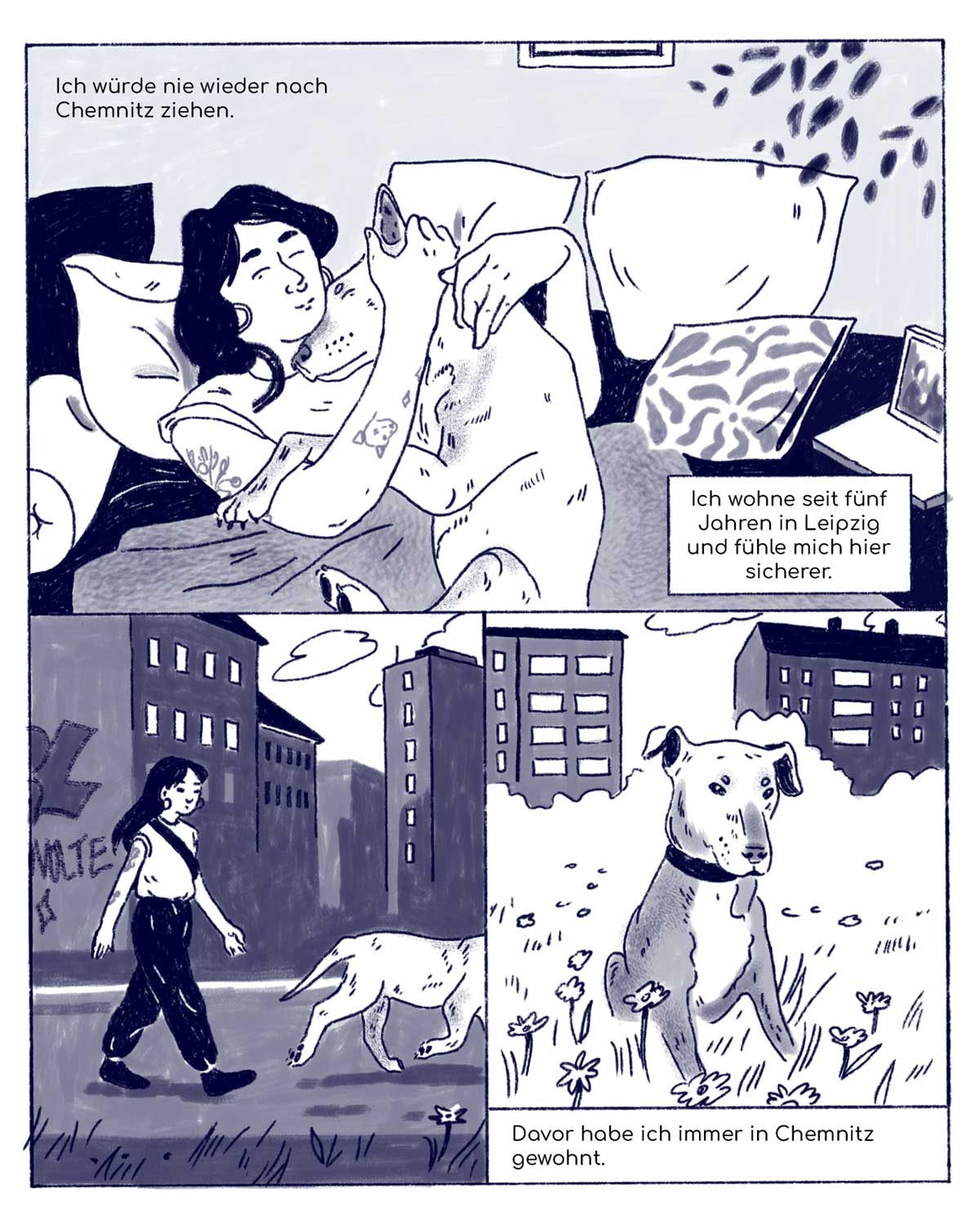

Carolin
2015 zieht Carolin zunächst für ihr Kunststudium nach Dresden und später weiter nach Düsseldorf. Bei Besuchen in ihrer Heimatstadt beobachtet sie, wie sich Chemnitz verändert.
In 2015, Carolin moved first to Dresden and then to Düsseldorf to study art. She regularly visits Chemnitz and observes how it changes.

I consider Chemnitz my hometown. I really enjoyed living here, and if I’d had the chance to study art here, I probably wouldn’t have left. At 17, even before finishing school, I applied to Dresden – and got in.
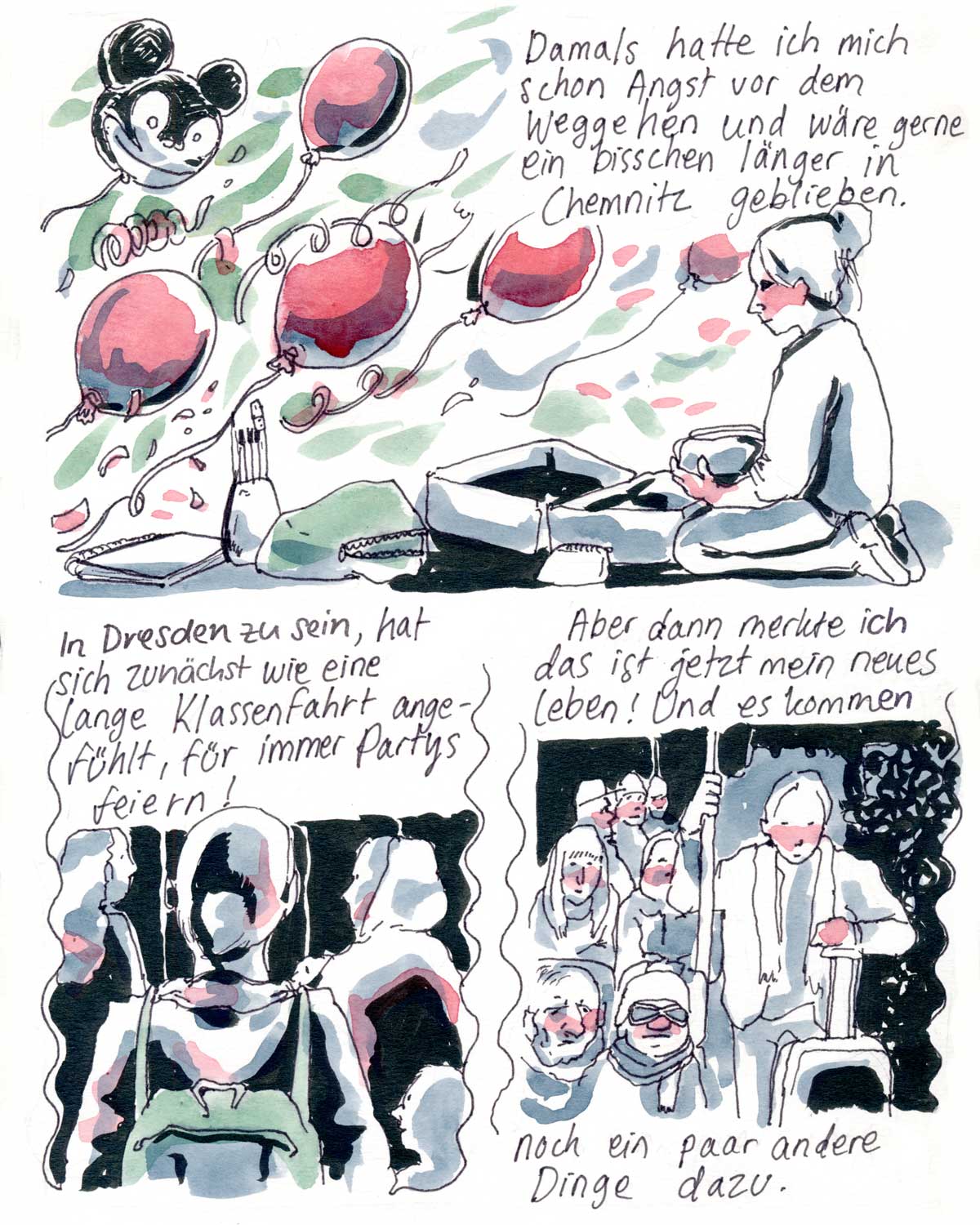
Back then, I was already afraid of leaving and would have liked to stay in Chemnitz a little longer. When I first arrived in Dresden, it felt like an extended school trip – endless parties! But then I realized: this is my new life now. And there are a few other things to add to that.
Doro
Doro zieht 1993 aus Chemnitz weg – und kehrt viele Jahre später zurück.
Doro moves away from Chemnitz in 1993 – and returns many years later.

Karl-Marx-Stadt, 1987
I grew up in the Heckert area.
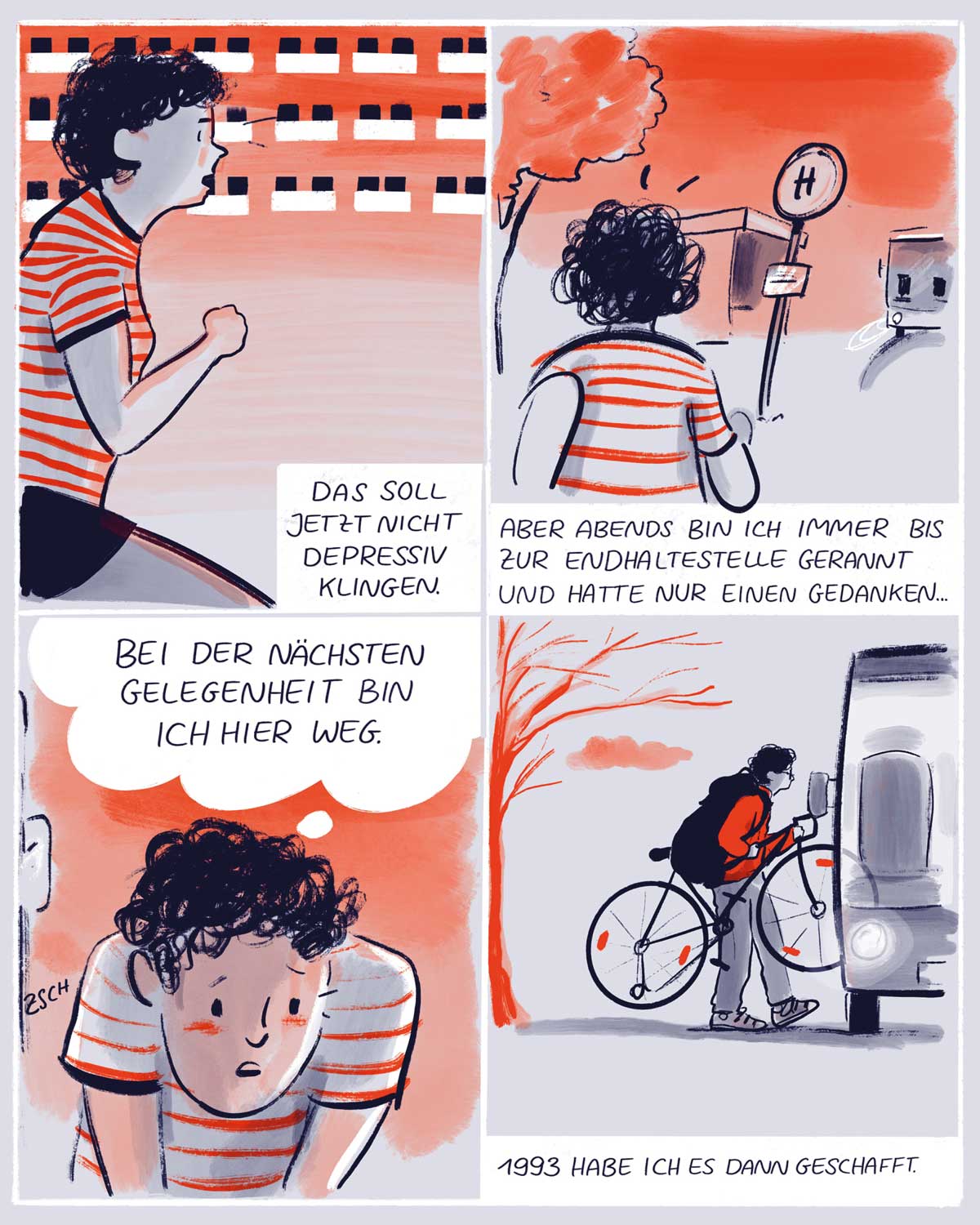
This isn‘t supposed to sound depressive.
But every night, I ran to the last bus stop and had only one thought:
„The next chance, I‘m getting outta here.“
In 1993 I made it.
Uta
1991 geht Uta für eine neue Stelle von Chemnitz nach Solingen. Ihre beiden Kinder holt sie ein Jahr später nach und pendelt fortan abwechselnd mit ihrem Mann zwischen beiden Orten.
In 1991, Uta moves from Chemnitz to Solingen for a new job. She brings her two children a year later and from then on alternates commuting between the two places with her husband.
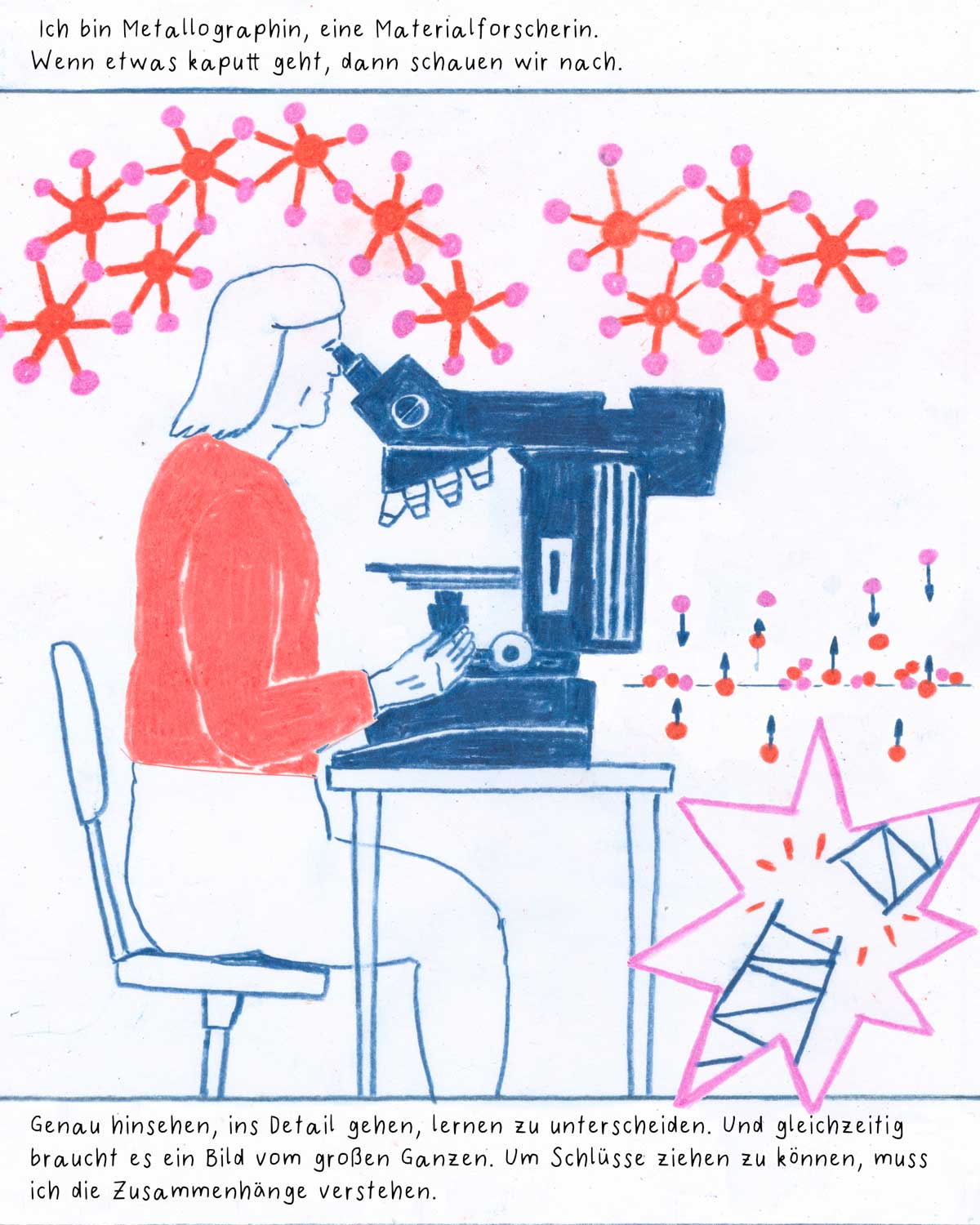
I’m a metallographer and materials researcher.
When something breaks, we take a closer look.
We take a precise look. We get into the details. We learn to distinguish between things. At the same time, I need to see the bigger picture. In order to draw conclusions, I have to understand how things connect.
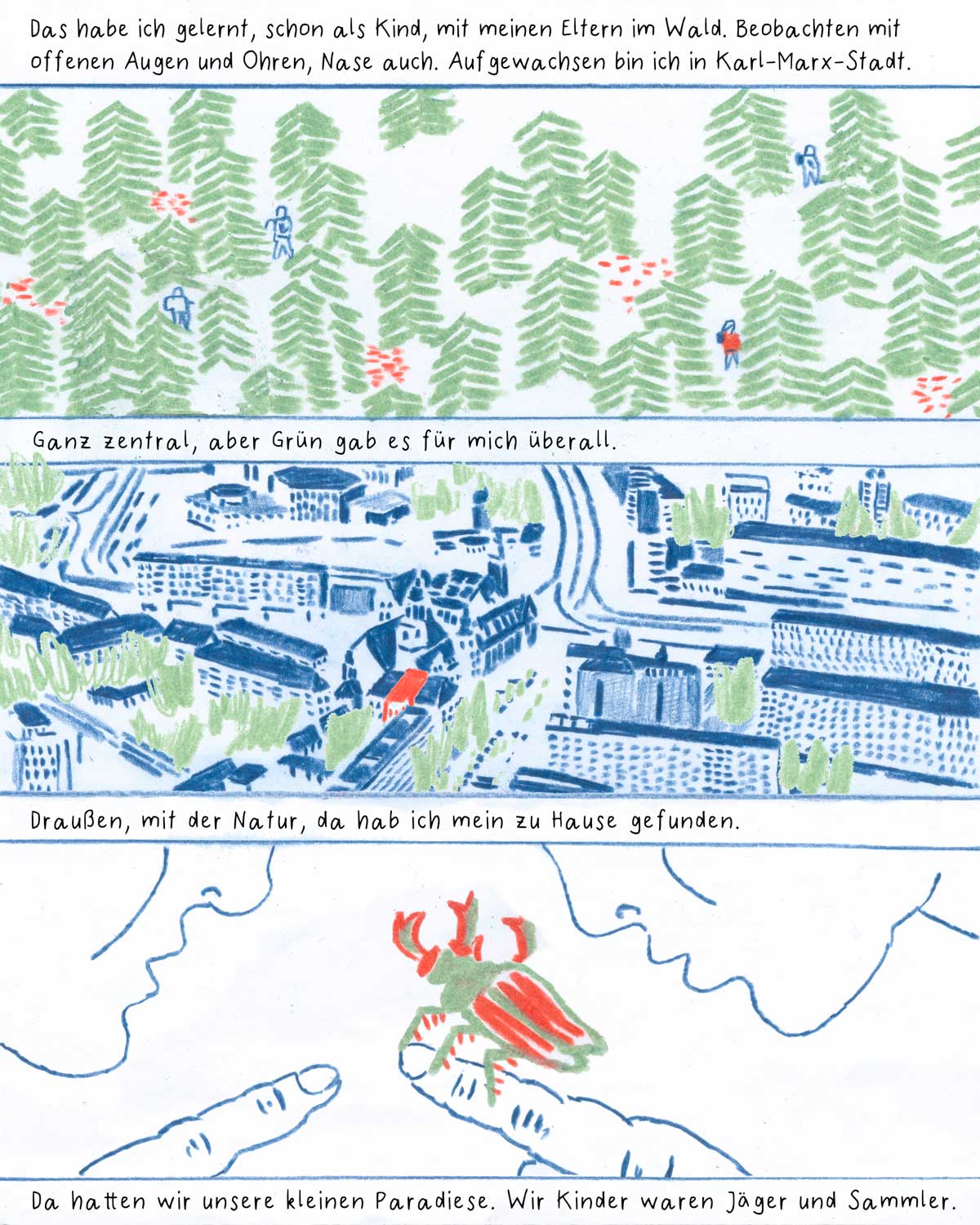
I learned that early on, when I was a child walking in the forest with my parents. I observed with open eyes, ears, and nose. I grew up in Karl-Marx-Stadt. It was in the center of town, but I found green spaces everywhere.
Outside in nature is where I felt at home. We had our own little paradises. We children were hunters and gatherers.
Linda
Nach der Wende zieht Linda mit ihrer Mutter von Chemnitz nach Solingen – ein prägender Schritt. In unserem Comic erzählt sie davon, was bleibt, wenn man geht. Und warum es sich lohnt, über die DDR zu sprechen – jenseits von Klischees, im Austausch.
After the German Reunion, Linda moves with her mother from Chemnitz to Solingen – a formative step. In our comic, she reflects on what remains when you leave. And why it’s worth talking about the GDR – beyond clichés, in conversation.
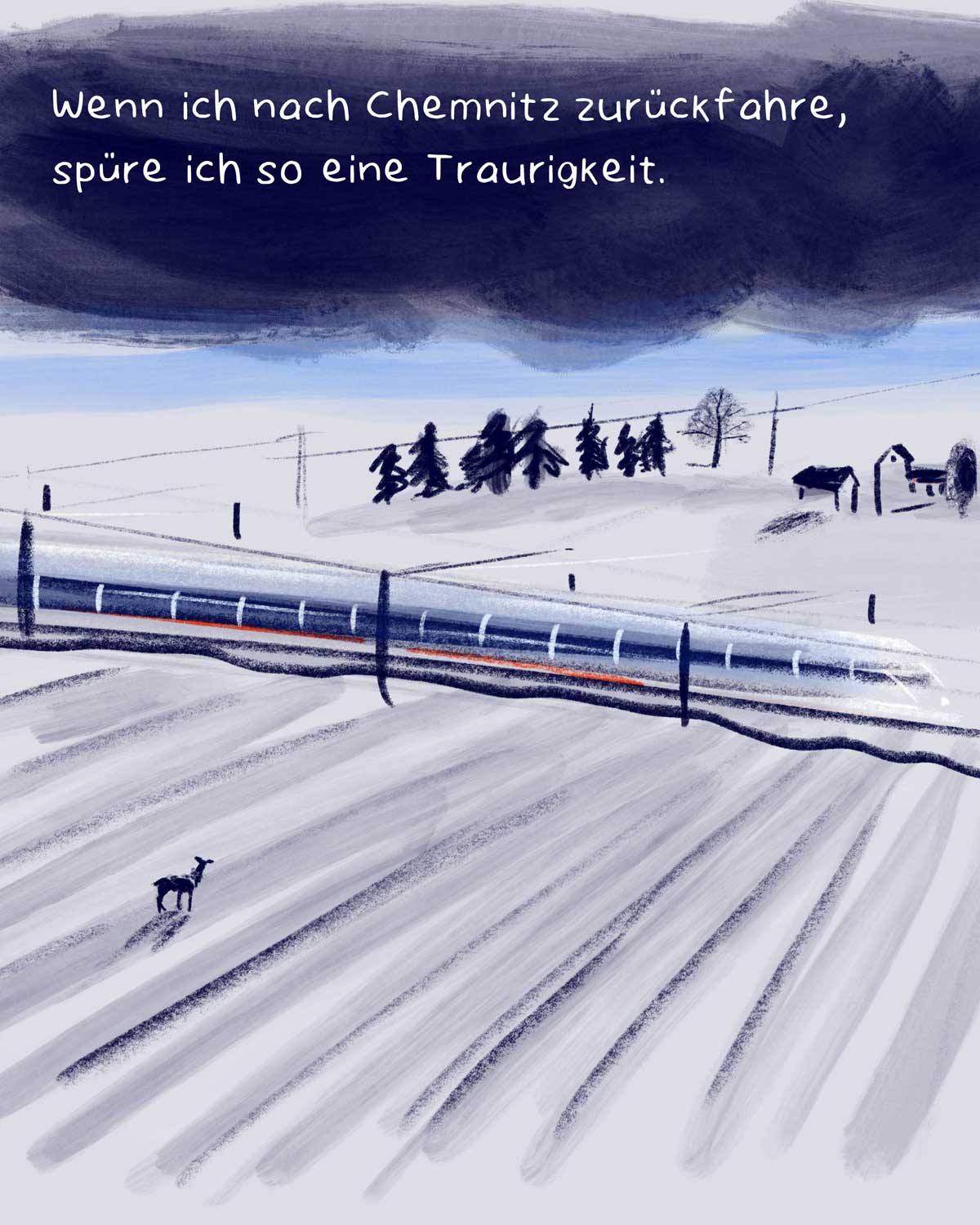
Whenever I go back to Chemnitz, I feel this deep sadness.
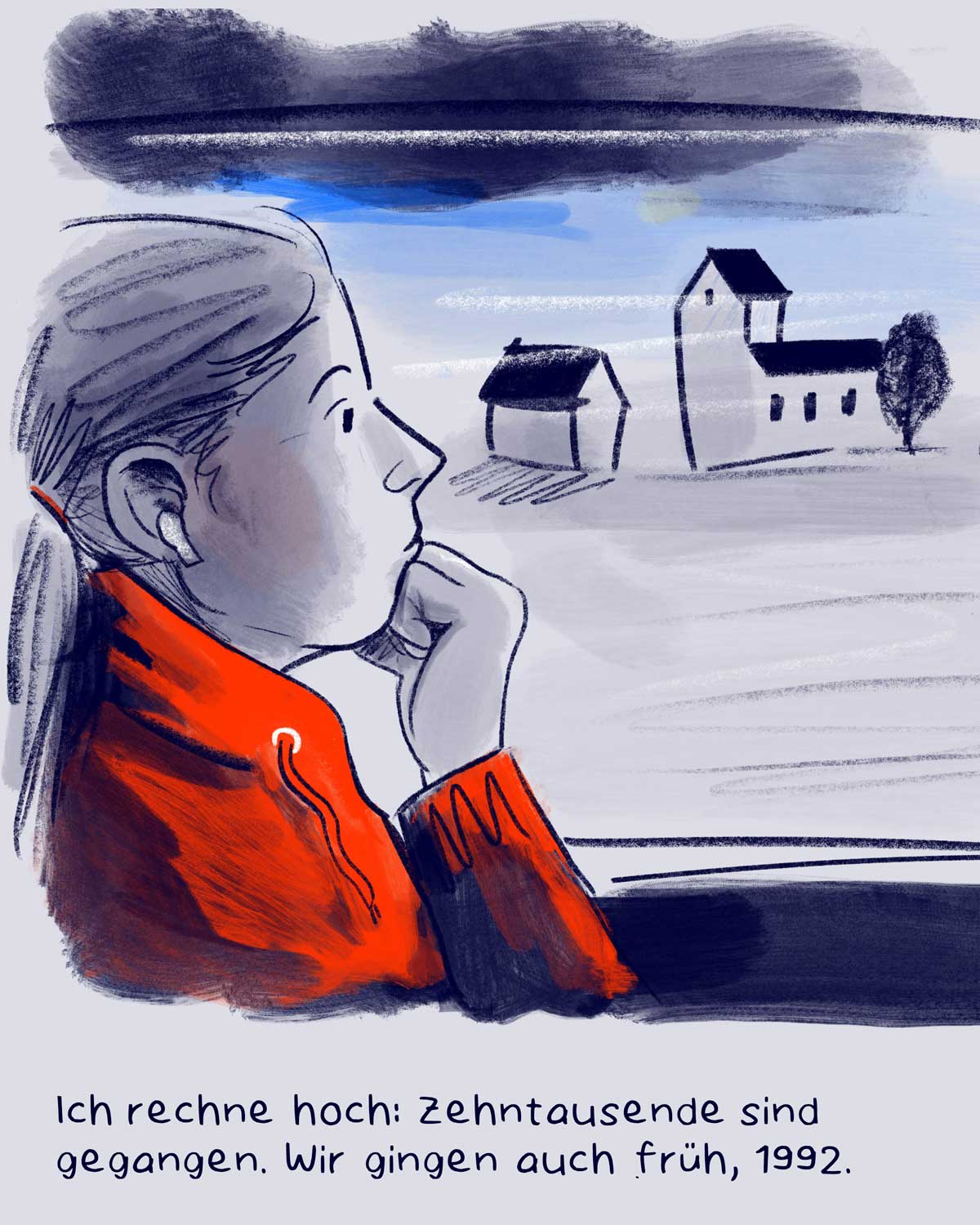
I do the math: tens of thousands have left.
We left early too, in 1992.
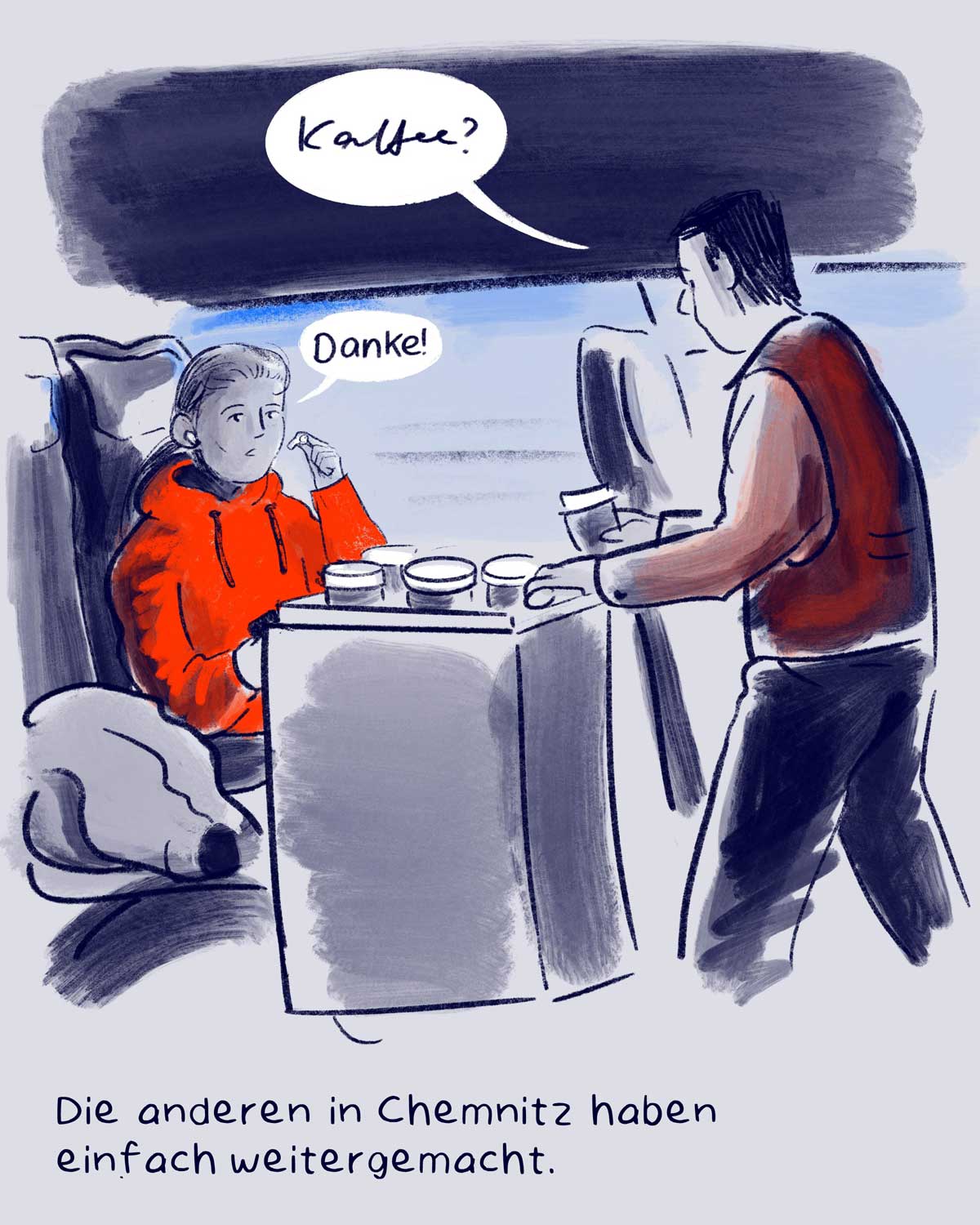
The others in Chemnitz just carried on.
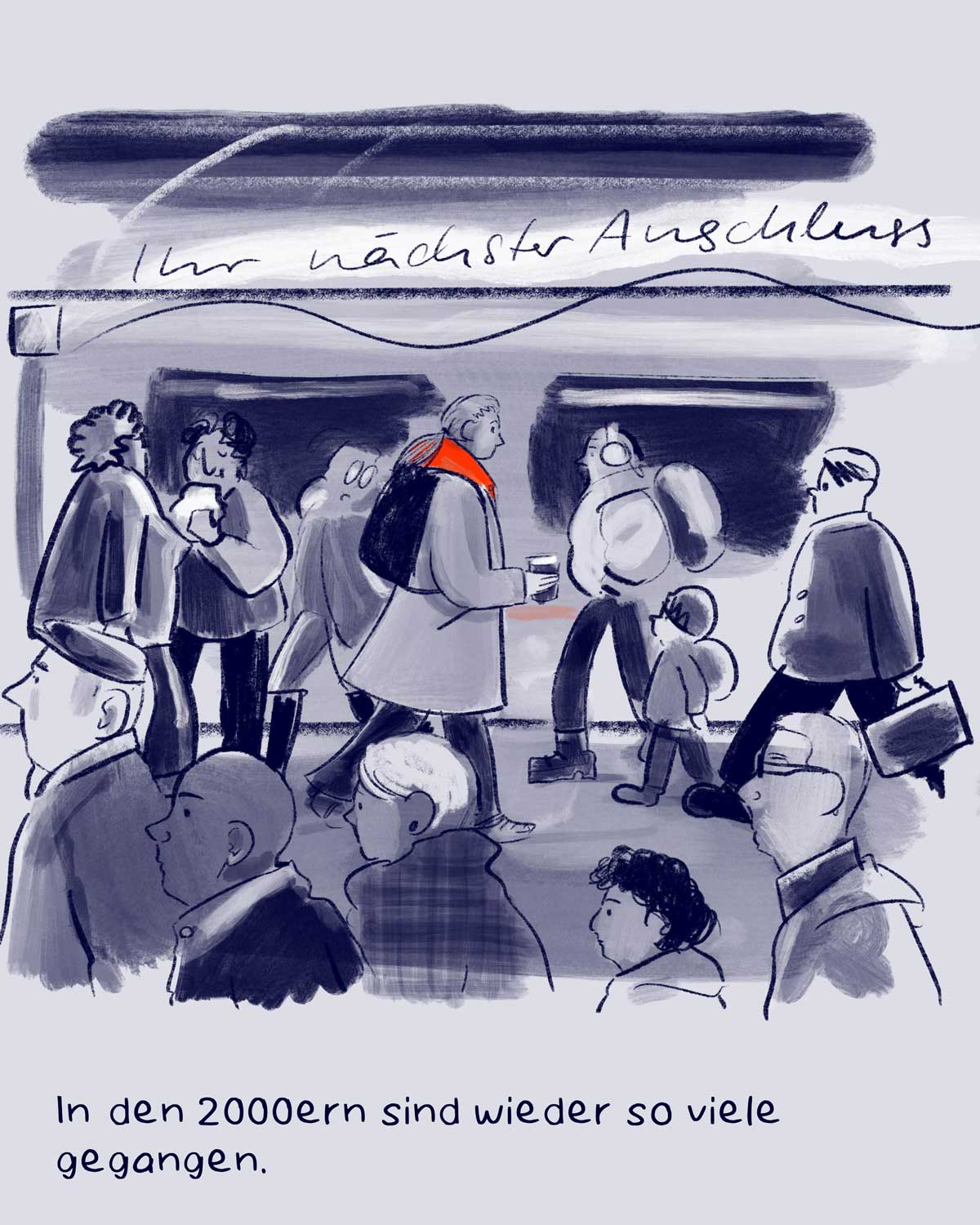
In the 2000s, so many left again.

Everyone tried to gain a foothold – and find a future in this new world.
Finanzierung / Sponsoring
Ein Projekt im Rahmen der Kulturhauptstadt Europas Chemnitz 2025. Diese Maßnahme wird mitfinanziert durch Steuermittel auf der Grundlage des vom Sächsischen Landtag beschlossenen Haushaltes und durch Bundesmittel der Beauftragten der Bundesregierung für Kultur und Medien.

Mit freundlicher Unterstützung des Finnland-Instituts, Berlin / With the kind support of the Finnland Institut, Berlin
Wir danken unseren Sponsoren Volksbank Chemnitz, sowie der Deutschen Telekom!

